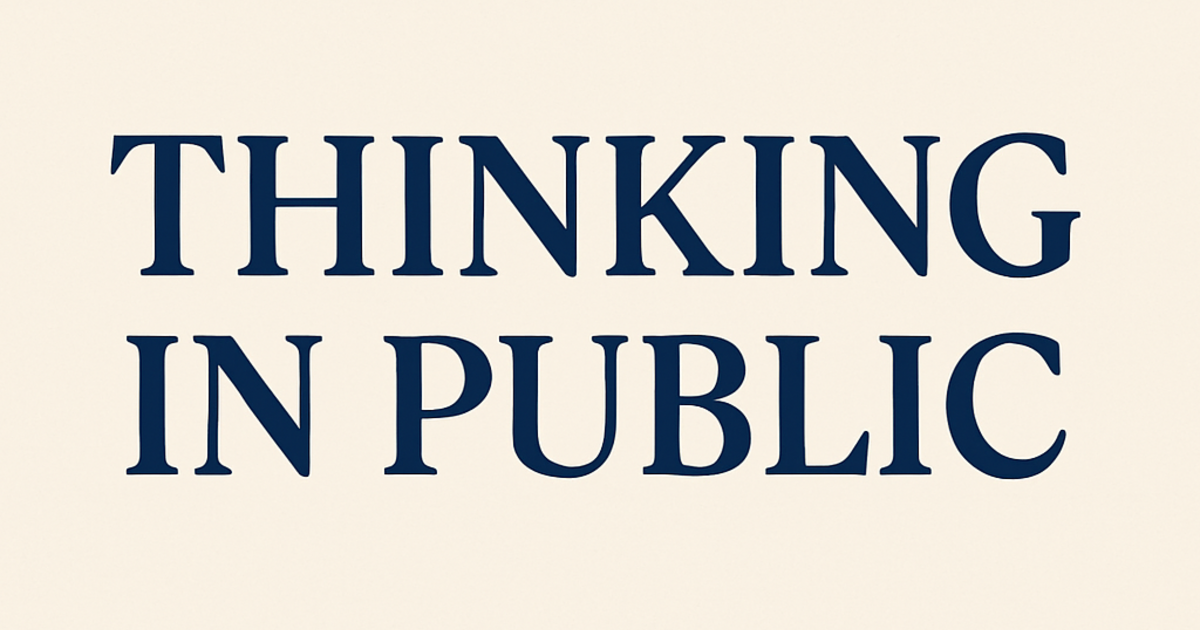The two "V" words no one can really define
Why boring work might be the most moral kind

There’s a strange paradox in how we think about doing good.
We’ve started to reward what looks like goodness more than what actually creates value.
Post a heartfelt thread? You’re applauded.
Volunteer on weekends? You’re admired.
Donate publicly? You’re praised.
But quietly build a tool that helps 10,000 people a week?
Design a billing system that reduces fraud?
Fix the scheduling backend at a hospital so patients wait less?
No applause. No likes. No halo.
That kind of work doesn’t look “virtuous.”
It just works.
But the truth is: most real value doesn’t look noble.
And most virtue signaling doesn’t scale.
Why We Confuse Signals for Substance
We live in an attention economy.
And in an attention economy, visibility often beats utility.
The loudest voice in the room feels like the most valuable.
The person talking about impact looks more impactful than the one quietly generating it.
But that’s because we’ve confused performing care with creating outcomes.
- Advocating for patients ≠ fixing the systems that harm them.
- Talking about burnout ≠ redesigning workflows to prevent it.
- “Raising awareness” ≠ building infrastructure that actually solves something.
We’re drowning in awareness.
What we need is action.
What we need is builders.
Why Value Is Often Invisible
Real value creation is usually:
- Technical
- Quiet
- Hard to explain in a tweet
- Full of tradeoffs
- And... not very sexy
No one cheers for the person who rewrites legacy insurance code.
Or the one who restructured a clinic’s intake process to cut wait times by 40%.
Or the one who saved a nonprofit from collapse by introducing basic cash flow planning.
But these people are the reason things work.
They are the backbone of progress.
And most of them will never be called “thought leaders.”
Because their work doesn’t look virtuous.
It is.
The Problem With “Looking Good”
There’s nothing wrong with sharing your mission or your passion.
But when looking good becomes more important than being useful, something dangerous happens:
- People start optimizing for attention instead of outcomes.
- Activists start building personal brands instead of actual systems.
- Entrepreneurs pitch products they can’t deliver — but market well.
- Leaders avoid hard decisions because they fear public backlash.
- Institutions become paralyzed by optics.
You can’t solve complex problems if every move has to look perfect.
Sometimes, real solutions are unpopular.
Sometimes, progress is ugly, boring, or misunderstood.
We need more people willing to be effective even if it means being misread.
The Morality of Boring Work
It is moral to write good code.
It is moral to design a better consent form.
It is moral to automate a task that saves someone 2 hours a week.
It is moral to make money if your product genuinely helps people.
Moral work is not what trends.
It’s what lasts.
You shouldn’t have to sacrifice results to be seen as “ethical.”
And you shouldn’t have to act virtuous to be doing the right thing.
Reclaiming Real Value
If you’re building something that actually works — keep going.
Even if no one understands it yet.
Even if people think it’s too simple. Or too niche. Or too “commercial.”
If it helps people — you’re on the right path.
And if you feel the urge to prove you’re a good person, pause.
Remember: value speaks louder than virtue-signaling ever could.
At the end of the day, the world is shaped not by those who look like they care…
…but by those who quietly, patiently, persistently solve problems.
